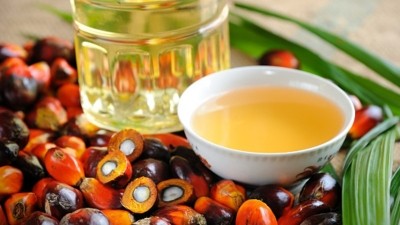ASEAN Focus: Thai Union, Philippines salt sector revamp, Singapore's Nurasa and more feature in our round-up

Thai Union Exclusive Part I: Sensory experience key for plant-based seafood to match other alt-proteins
Manufacturers of plant-based seafood need to ensure they get the sensory experience right if the sector hopes to reach the scope and consumer acceptance that other plant-based meat alternatives have achieved, according to Thai Union.
Thai Union’s first plant-based brand OMG Meat initially launched with multiple meat and seafood alternatives such including chicken products and crabcakes – but one of its more recent additions, its plant-based shrimp, made some of the most significant waves in the industry.
Salty stakes: Philippines eyes revamp of salt industry regulations to boost productivity and self-sufficiency
The Philippines is looking to revamp the regulations governing salt production and processing in the country, in a bid to boost local productivity and reduce reliance on salt imports.
The Philippines has been subject to steep price hikes for a number of core food commodities as a result of global inflation, impacting multiple items considered to be staples or vital to local cuisine such as eggs and onions.
The latest commodity to experience a rise in prices is salt, at an average of US$0.47 as of December 2022 compared to around US$0.187 per kilogramme back in 2019, but existing rules and regulations limiting the sector have been criticised as the main culprit behind the rising prices.
Nutrition, taste, texture: Singapore’s Nurasa seeks to drive innovation of ‘silver diet’ and alternative proteins
Singapore firm Nurasa is seeking to drive innovation in alternative proteins and nutritional options available to the seniors on the back of an ageing population in Singapore.
Together with A*STAR’s Singapore Institute of Food and Biotechnology Innovation (SIFBI) and Agrifood Innovation Centre (AFIC), Nurasa has launched the Food Tech Start-Up Challenge.
The inaugural challenge is currently inviting pitches from start-ups across the globe in two areas, namely 1) the optimisation of alternative proteins, functional foods and 2) the creation of novel product formats in the alternative protein or functional foods space.
‘Gateway to Asia’: Future Food Asia 2023 seeks to attract international food firms to accelerate regional innovation
Organisers of the Future Food Asia (FFA) Awards 2023 have revealed a whole new awards track targeting start-ups based outside APAC, hoping that this will bring more expertise and technologies into the region.
Entries are now open for FFA 2023, where start-ups will compete for a US$100,000 grand prize to further develop groundbreaking innovations and create a safer, more secure food system for the APAC region.
This will be the seventh edition of the Future Food Asia Awards, and previously entries were always only open to APAC-based food firms – but this year the organisers ID Capital have announced an additional new awards track for firms based outside of the region.
Palm oil trade war? South East Asia gears up to fight back against EU deforestation regulation
Major South East Asian palm oil producer countries are gearing up to retaliate against the European Union’s controversial deforestation regulation, with the situation rapidly devolving to the point that a trade war could be on the horizon.
The European Union (EU) parliament approved its long-debated deforestation regulation last year, and has not budged on its position despite long-time opposition from many producer countries worldwide, especially palm oil producing nations such as Malaysia and Indonesia in the ASEAN region.
Previously the two palm oil heavyweights had been less consistent in their approach opposing the deforestation regulation, but given the recent developments as well as Malaysia’s change of government, much stronger co-operation appears to be on the cards.












